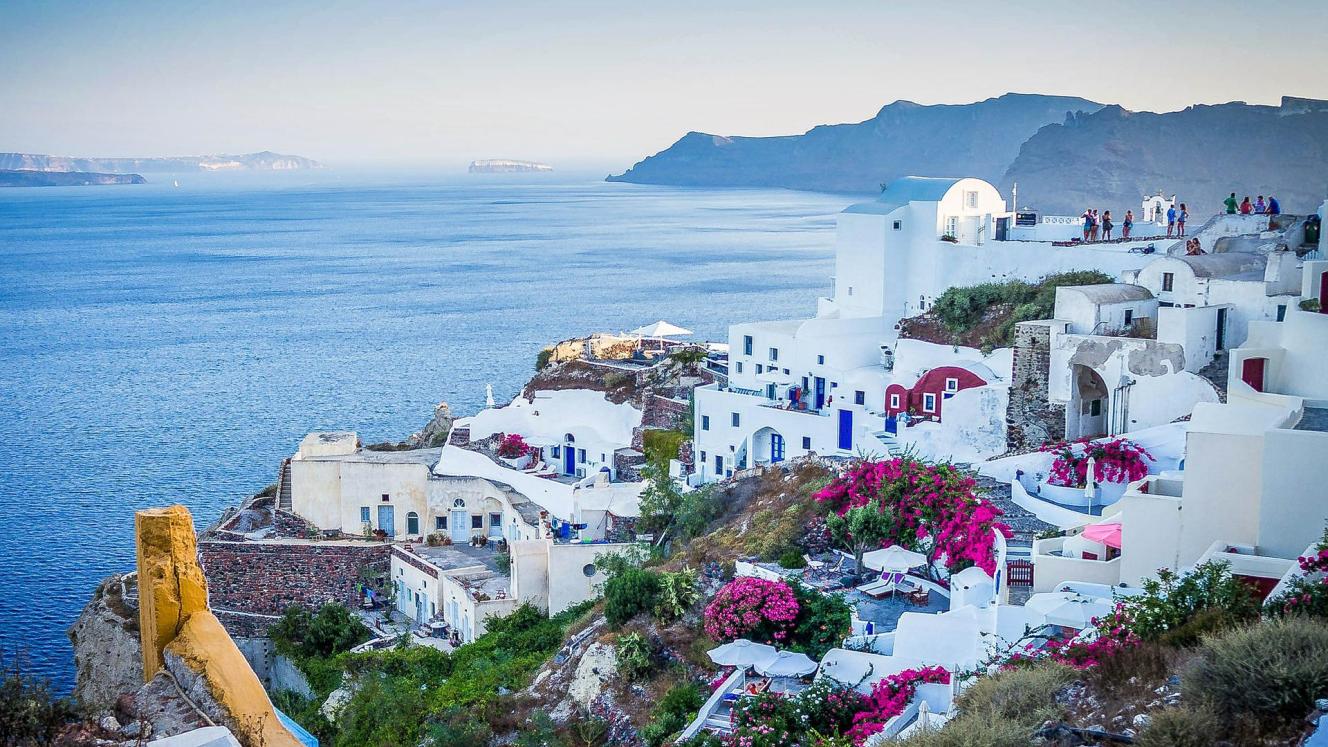The phenomenon of overtourism in Greece is not as widespread and intense as recent publicity might suggest. Reports can give the impression that there is a year-round and countrywide saturation problem. This is very far from the truth.
It is true that specific destinations, such as Mykonos, Santorini and to a lesser extent Paros and Corfu, reach capacity during a specific period, which is July and August.
The rest of the year, one can have a wonderful experience with fewer people around, milder temperatures and lower prices.
The tourism season in Greece has extended to months like March, April, May, June, September and October.
Athens, Thessaloniki, Rhodes, Crete as well as other major islands and cities are now year-round destinations.
Autumn and spring are beautiful seasons with lower temperatures, fewer visitors and lower prices. During the autumn (September to end October) the sea temperature is at its warmest for those looking for a beach holiday.
Spring (March, April, May) is the most beautiful time in Greece. The flowers and trees are blooming and Greece is at its ‘greenest’. It is an ideal time to explore the mainland, visit the mountain villages, explore the wineries, local cuisine and, of course, visit the multitude of ancient and other historic sites.
Even in winter (November-February), which is generally mild, travellers can enjoy city stays, visit the uncrowded historic sites and enjoy vibrant night-life. One can also visit the villages on snow-covered mountains and skiing is possible at the country’s many skiing centres.
For those who can't avoid the high season (end June to early September), Greece is blessed with hundreds of islands and a beautiful mainland that is surrounded by sea. As a rule of thumb, choose islands that do not have an airport, or one that services domestic flights only.
An extensive network of modern, comfortable and safe ferries transport visitors to many unspoilt islands with beautiful villages, pristine beaches, azure seas, exceptional local cuisine and genuine traditional hospitality. Alternatively, one can hire a chauffeur-driven van, hire a car or even use the extensive network of modern, clean and safe public buses to go anywhere on the mainland. Greece has one of the safest and most modern highway networks in Europe.
The Greek government is taking steps to alleviate pressure on the most-visited areas, with infrastructure upgrades including new ports and airport terminals, road improvements, waste management systems and improved water and energy supply. Greece produces over 60% of its electricity from air and wind and, on some days, the country runs entirely on green energy.
A number of new resorts are under development across the mainland and the islands. A fleet of seaplanes is also set to launch soon, offering even greater access to the smaller islands.
In closing, no matter when one plans to visit Greece, or the reason for travel, there is an abundance of options available. Travel professionals have every opportunity to craft a tailormade experience that exceeds clients’ expectations.













